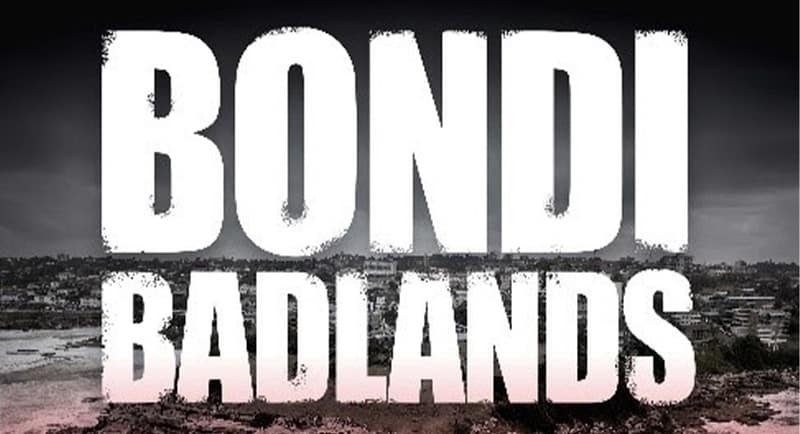The true story of how the scenic clifftops of iconic Bondi became the epicentre of a series of brutal gay hate murders is the focus of new true crime podcast Bondi Badlands from The Sydney Morning Herald and The Age.
The five-part series, by Good Weekend deputy editor Greg Callaghan and based on his acclaimed 2007 book of the same name, will launch Friday, October 1 with weekly episodes available on all major podcast platforms.
Bondi Badlands is an investigation into a series of callous murders and mysterious disappearances in Sydney in the late 1980s and early Nineties.

All victims were gay, and the series explores the slaying of four young men – WIN TV weather reporter Ross Warren, barmen John Russell, Thai national Kritchikorn Rattanjurathaporn and Frenchman Gilles Mattaini – who met their grizzly deaths at the bottom of the cliffs between Bondi and Tamarama beaches.
The brutal violence occurred on the clifftops near Marks Park which, at the time, was so notorious for targeted gay bashings that the area was nicknamed Bondi Badlands. While Bondi is now the domain of multi-millionaires and a progressive population, during the 1980s it was at the intersection of a cultural change where the rough working class was being usurped by gentrification and a new, confronting social change.
With Marks Park a renowned gay beat, gangs would regularly lie in wait and randomly attack those on the headland under the cloak of darkness, using the cliffs as murder weapons. Some victims, like Kritchikorn, were discovered by divers in the water in 1990, while others like Ross disappeared forever in July 1989 after his body was swept out to sea.
In what would easily shock a nation now, the series of attacks remained unsolved and garnered little police attention – until May 2000 when Detective Sergeant Stephen Page from Paddington Police Station came across a bunch of letters from Ross Warren’s mother Kay pleading for her missing son to be formally declared deceased so she could find some closure.
Page’s interest in the case started Operation Taradale, which eventually led to an inquest by the Deputy State Coroner. Over the course of four decades, there have been at least 88 murders of gay and transgender people in Sydney, with 30 cases unsolved.
“What caught my eye [in May 2000] was that attached to the file was a letter from Kay,” says the now former detective Stephen Page. “There were many other letters that Kay had kept asking NSW Police asking for assistance and support and nothing had been done.
“I just felt for Kay. I had a young son myself and I thought how horrible as a parent to have a child missing and you just want some support to find out what’s happened to them. I took it up then and there.”
“Either side of the disappearance of Ross Warren – about 18 months either side of July 1989 – there was a lot of violence associated around Marks Park. There was one victim that survived, and that was in December 1989 – and we refer to him as the one that got away…”
The series, containing interviews with key players including Detective Sergeant Page and those close to the victims, is sponsored by Waverley Council and community health organisation ACON.
Each episode centres on the murder of the Bondi men, with episode four also examining the 2005 inquest, prison phone taps, and the story of how David McMahon became Page’s star witness after escaping almost certain death. The final episode covers the case of Scott Johnson, whose body was found at the base of cliffs near North Head, Manly, in 1988. A man was arrested by police in May 2020 after a key informant came forward to help break the cold case. A pre-trial hearing is set for early 2021.
Journalist Greg Callaghan pieces together the murders, the senseless and tragic loss of lives, and the effect the murders have had on friends and families, many of whom have never received justice or closure.
“It’s been a slow road to justice for most of the victims’ families,” says Callaghan. “The victims were good, loving men killed only because they were gay.”
